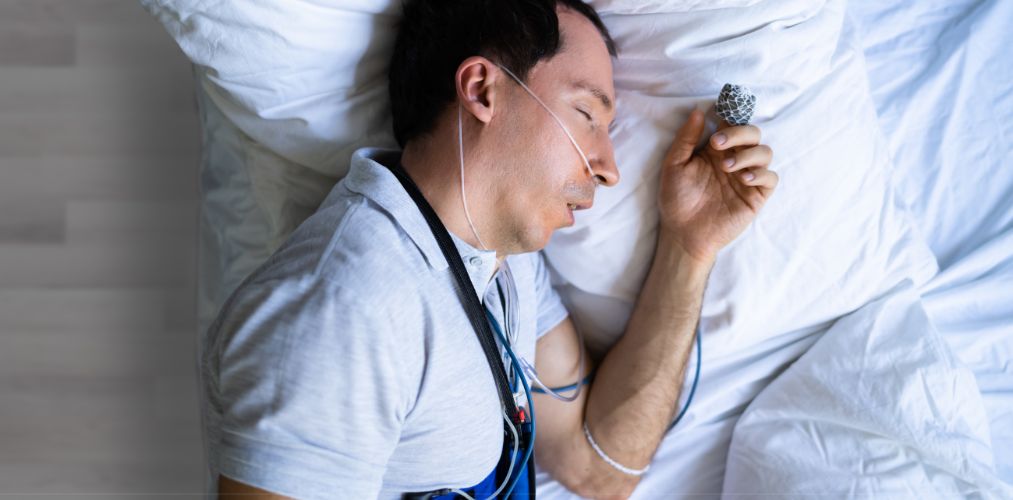Finding Your Zzz’s
Getting a good night’s sleep is very important. To help you get that sleep, there's Xywav, a prescription medication used to treat hypersomnia and narcolepsy.
Treatment Options for Better Sleep
1. Create a Sleep Routine
One easy way to improve sleep is to have a regular bedtime routine. Going to bed and waking up at the same time each day can help your body know when it’s time to rest. Here are some helpful tips for setting a good sleep routine:
- Go to bed at the same time every night: This sets a pattern that your body can recognize.
- Avoid naps in the afternoon: This can help you feel more tired at night.
- Wind down before bed: A calm activity, like reading or listening to soft music, can help you feel sleepy.
By following these steps each night, your body can get used to sleeping at a certain time, making it easier to fall asleep and wake up on schedule.
2. Make Your Bedroom Sleep-Friendly
Your bedroom should be a place where you feel calm and relaxed. Here are some ways to set up your bedroom for better sleep:
- Keep it dark: Use blackout curtains or shades to keep outside light from coming in.
- Control the temperature: Cooler rooms help most people sleep better, so try keeping it around 65°F (18°C).
- Reduce noise: Earplugs or white noise machines can help block out sounds that might wake you up.
- Limit screen time: Try to turn off screens at least an hour before bed, as blue light from phones and TVs can keep your mind awake.
These changes can create a cozy, calm bedroom that’s just right for sleeping.
3. Watch What You Eat and Drink
What you eat and drink, especially close to bedtime, can make a big difference. Caffeine and sugar can make it harder to fall asleep. Try to avoid these at least six hours before bed. Also, drinking too much liquid can lead to waking up in the middle of the night to use the bathroom. Here are some tips:
- Avoid caffeine in the afternoon and evening: Coffee, tea and soda can keep you awake if you have them too late in the day.
- Skip big meals before bed: A full stomach can make you uncomfortable and harder to sleep.
- Limit alcohol: While alcohol may make you feel sleepy at first, it can wake you up later in the night.
Choosing a light snack, like a banana or a few almonds, before bed can be a good option if you feel hungry.
4. Practice Relaxation Techniques
If you find yourself stressed or unable to turn off your thoughts, relaxation techniques can help. These are some easy ways to relax before bedtime:
- Deep breathing: Slowly breathe in through your nose, hold it for a moment and breathe out through your mouth. This can help you feel calm.
- Meditation: This can help your mind focus and let go of worries. Guided meditation apps are available to help you start.
- Stretching: Gentle stretches, especially in your neck and back, can help release tension and prepare your body for sleep.
Doing these calming activities before bed can help make falling asleep easier.
5. Consider Natural Sleep Aids
Some natural sleep aids may help if you’re having trouble sleeping. Always talk to your doctor before starting a new supplement, especially if you have health conditions. Here are some popular natural sleep aids:
- Melatonin: This is a natural hormone that tells your body it’s time to sleep. A melatonin supplement can help if you’re struggling to fall asleep.
- Chamomile tea: Drinking a cup of chamomile tea can have a calming effect and help you relax.
- Lavender oil: Some people find that lavender helps them sleep. You can put a few drops on your pillow or use a lavender-scented spray.
These natural aids can be an easy way to help you fall asleep without strong medications.
6. Speak with a Doctor About Medications
If you’ve tried these steps and still struggle to sleep, it might be time to talk to your doctor. There are medications for sleep problems that your doctor can prescribe. These medications are usually meant for short-term use and can help when other options haven’t worked. Remember, it’s important to follow the doctor’s directions with these medicines.
Some people also find success with therapy for sleep. Cognitive Behavioral Therapy for Insomnia (CBT-I) can help change thoughts and habits around sleep, making it easier to rest at night. This therapy teaches you new ways to deal with worries and helps create a better routine.
Xywav
Xywav is a prescription medication used to treat excessive daytime sleepiness and cataplexy (sudden muscle weakness) in people with narcolepsy. It is also approved for treating idiopathic hypersomnia, a rare sleep disorder where people experience extreme, often uncontrollable sleepiness.
Xywav contains a combination of salts that help regulate sleep patterns, promoting more restful nighttime sleep and reducing daytime sleepiness. It must be taken under strict medical supervision because of its specific dosing schedule and the potential for side effects.
Getting the Rest You Need
Finding the right mix of these options can make a big difference in how you sleep. Good sleep helps with energy, focus and mood. If you try these methods and still find it hard to sleep, don’t hesitate to reach out to a healthcare provider for more support.
